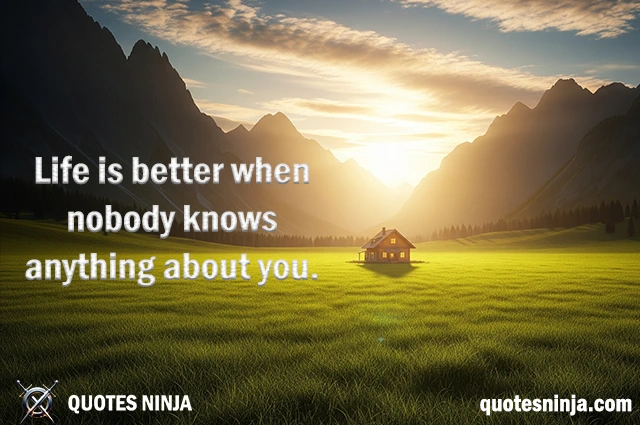
Deeper Meaning of Freedom Quote
The quote “Life is better when nobody knows anything about you” expresses a sentiment about the value of privacy, anonymity, and personal freedom. Here’s a breakdown of what it can mean:
- Freedom from Judgment
When people don’t know your past, your secrets, or your struggles, they can’t judge you based on them. This can allow you to live more freely, without the weight of others’ expectations or opinions.
- Control Over Your Narrative
If no one knows anything about you, you control what, when, and how much you share. This control over your personal story can be empowering and protective, especially in a world where oversharing is common.
- Reduced Vulnerability
The less people know about you, the less they can use against you—whether intentionally or unintentionally. Privacy can act as a form of self-defense against gossip, manipulation, or exploitation.
- Simpler Relationships
Sometimes, knowing too much complicates things. If others don’t have preconceived notions about you, interactions can feel more genuine, present, and uncomplicated.
- Peace and Solitude
For some, solitude is peaceful. When no one knows anything about you, you may experience a kind of mental quiet—fewer interruptions, fewer explanations, and more space to just be.
That said…
This quote doesn’t suggest complete isolation is ideal—it reflects a preference for discretion over exposure, and mystery over transparency. In a world of constant sharing, it’s a reminder that there’s strength in privacy.
A story inspired by Freedom Quote “Life is better when nobody knows anything about you.”
Freedom Story: “The Quiet Man“
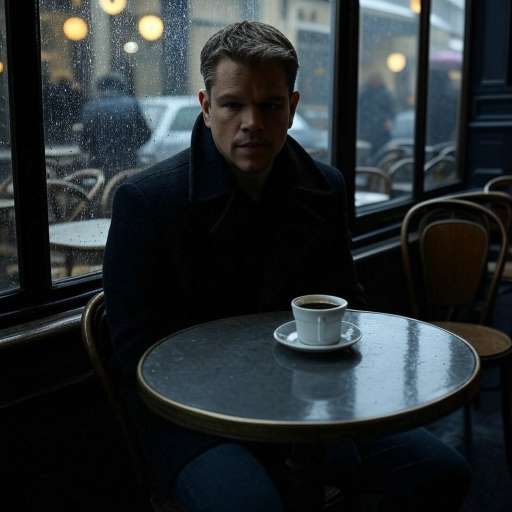
Rainy Paris Café Window:
Rain lashed the windows of a nondescript Paris café, where a man sat alone at a corner table. He stirred his coffee absentmindedly, eyes scanning every face, every movement. His name wasn’t Jason Bourne anymore. In fact, he had no name—just a habit of vanishing before the world could ask too many questions.
Months had passed since he walked away from the chaos of his former life—guns, governments, ghosts of the past. He now lived as a shadow, drifting from city to city, never staying long enough for anyone to learn more than his order: “Un café noir, s’il vous plaît.”
And yet, despite the stillness of his new life, tension clung to him like a second skin.
Earlier that morning, something had shifted.
First, it was a woman at the market who looked at him just a beat too long. Then, a man trailing a few paces behind him for three straight blocks. He didn’t panic. Not anymore. He’d learned that panic only led to mistakes—and mistakes got you killed.
Still, the quiet he’d built around himself was beginning to crack.
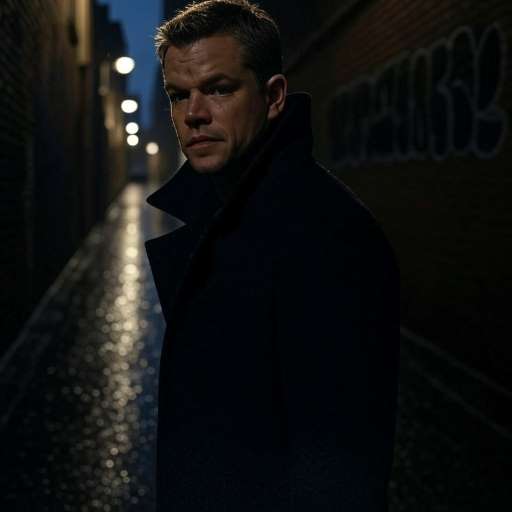
Narrow Paris Alley:
He exited the café through the back door, disappearing into a narrow alley soaked in gray. He changed directions three times, each turn deliberate. Eventually, he arrived at a rundown apartment he’d been renting under a name that wasn’t his. He slipped inside, bolted the door, and scanned the room instinctively.
Everything was in its place. No signs of entry. But something felt off. The kind of off that can’t be seen—only felt. He didn’t need proof. His instinct had saved him too many times to ignore it now.
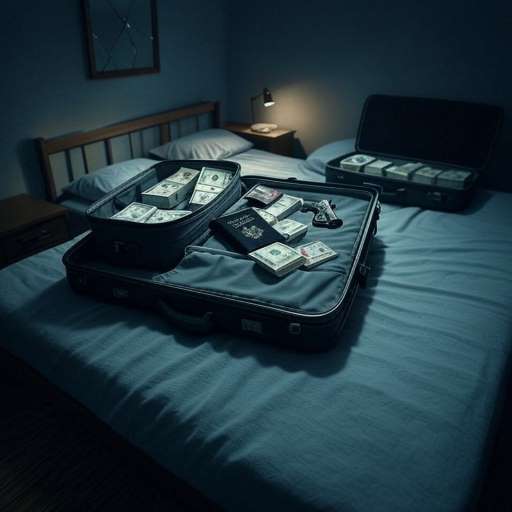
Spartan Apartment Hideout:
So, without hesitation, he pulled out the false bottom of his suitcase. Inside were the essentials: a passport, local currency, a prepaid phone, and a compact handgun. This life had taught him one lesson above all: Never stay ready—be ready.
Within ten minutes, he was gone again.
By sunset, he was boarding a train to Zurich. Not because he wanted to return, but because it was the last place they’d expect him to go. It was always about staying one move ahead.
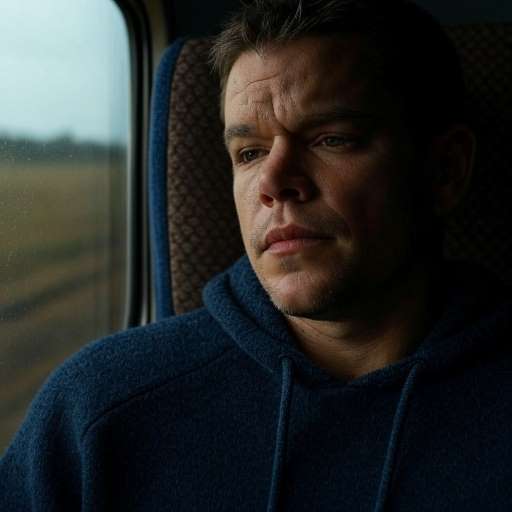
Train Window Reflection:
As the train slid through the countryside, he watched his reflection in the window. He looked…ordinary. That was the point. No one knew him. No one called his name. And honestly, that was a kind of peace. When nobody knows anything about you, there are no expectations, no betrayals—just silence.
But solitude came at a cost.
He remembered Marie, her laughter, her warmth. He remembered the way she saw past the name and the skills, into the man he was trying to become.
She had believed in him. That made leaving her the hardest part. Still, it was necessary. Her knowing him put her in danger, and that was something he could never allow.
After reaching Zurich, he checked into a small hostel under yet another alias. No questions asked. The kind of place that welcomed ghosts and paid in cash. That night, as he lay in the narrow bed, he couldn’t sleep.
The quiet he used to crave now pressed against him like a weight.
Despite everything, he missed being known—just a little. Missed someone saying his name like it mattered. But he reminded himself: Peace is safer than connection. Secrecy is stronger than love. And he had made his choice.
Still, doubts crept in.
Was a life without ties really a life? Was safety worth solitude?
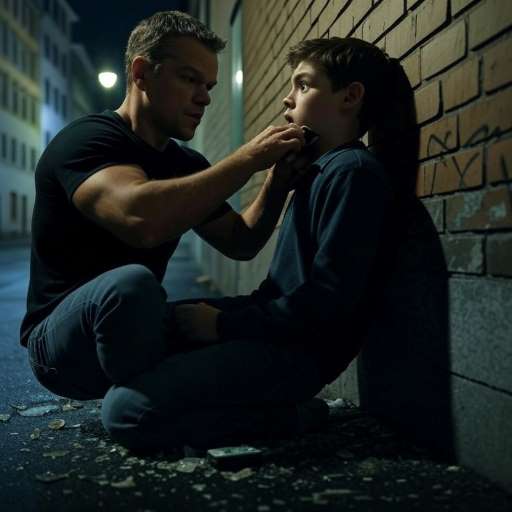
Confrontation in a Back Alley:
The next morning, walking along Bahnhofstrasse, he spotted a man leaning against a lamppost. Black coat, earpiece, still posture. Bourne didn’t stop, didn’t glance twice, but his pulse picked up.
He turned down a side street. Then another. The footfalls behind him grew louder.
Suddenly, he pivoted and ducked into a service entrance. In one fluid motion, he disarmed the man who followed. It wasn’t a professional—just a scared kid with a camera phone.
“I just… I just wanted a picture,” the boy stammered. “You’re him, aren’t you? Jason Bourne.”
Bourne stepped back, stunned. So much for anonymity.
“You’ve got the wrong guy,” he said, voice cold, but measured.
He dropped the phone to the ground and crushed it under his heel. Without another word, he walked away.
By the time the sun dipped behind the rooftops of Zurich, Bourne was already gone. No trace, no trail. He knew he couldn’t outrun the past forever, but he could still outsmart it—for now.
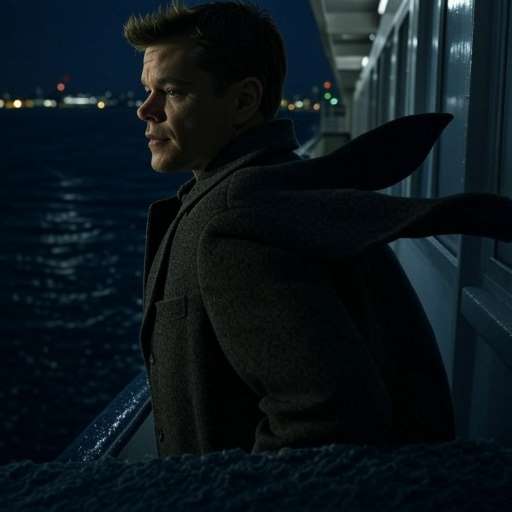
Ferry at Night:
As he boarded a late-night ferry out of the city, he stood on the deck, watching the lights flicker behind him. The water stretched into the darkness, silent and unknowable.
Here, he could be anyone—or no one at all.
And in that moment, he understood the truth behind the thought that had haunted him since the beginning: Life is better when nobody knows anything about you.
Because being known meant being vulnerable. And being vulnerable had cost him everything before.
Now, he was done paying.
Here is the ending of freedom story from the quote “Life is better when nobody knows anything about you.”
Moral of the Story:
True freedom often comes with solitude—but solitude has a price.
The story explores the idea that when no one knows anything about you, you gain safety, control, and peace. However, it also highlights the emotional cost: isolation, loneliness, and the loss of meaningful connection.
Ultimately, the story suggests a deeper truth:
While anonymity can protect you from danger, it can also distance you from the very things that make life meaningful—love, trust, and being truly seen.
It’s a reflection on the balance between self-preservation and human connection—and how sometimes, choosing one means sacrificing the other.
To explore more on stories and dive into related ideas, be sure to check out the other posts where we cover all sort of stories related to quotes. Stay tuned for more…..
To explore more on quote topics, be sure to check out the other topics where we cover all categories of quotes. Stay tuned for more…..

